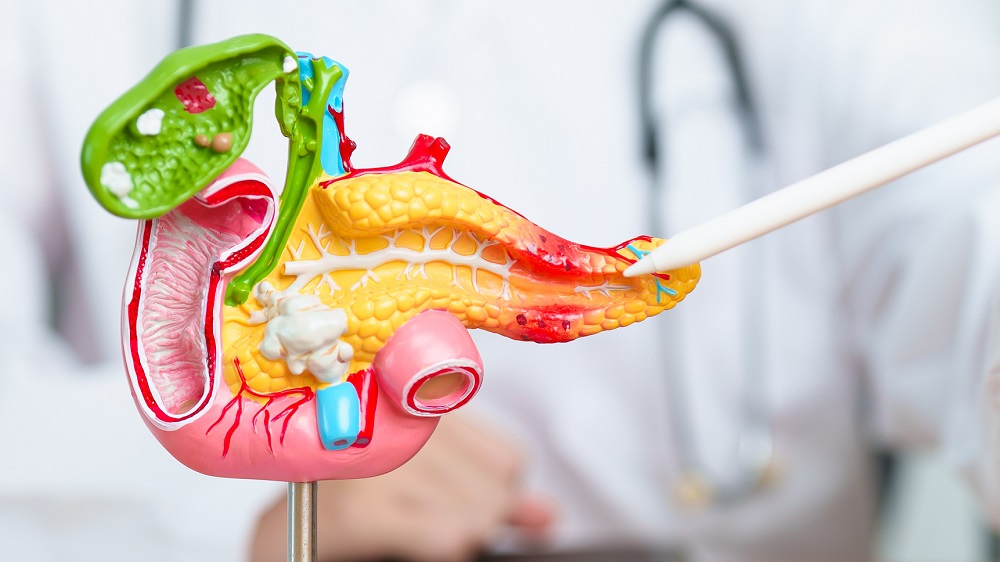Autodigestion From Gut Enzymes May Drive Aging
- This leakage causes damage to organ collagen.

A new study links damage caused by digestive enzymes escaping from the gut to several hallmarks of aging. The researchers dubbed this effect “autodigestion.” [1]
Don’t eat yourself up!
To live, we must eat, which involves breaking down compounds that we ourselves consist of, such as fat and proteins. Evolution has developed ingenious ways to prevent our bodies from consuming themselves. Digestive enzymes are produced by the pancreas and are only activated in the gut. However, once activated, they hardly differentiate between ingested food and the body’s own biomolecules, and they happily chomp on both.
What prevents them from harming us is the protective mucosal barrier in the gut. Unfortunately, like any bodily system, this one gets dysregulated with age [2]. In a new study, scientists from the University of California San Diego investigated this process in depth and ended up proposing what they call “a previously unexplored mechanism of aging due to autodigestion.”
The rogue enzymes
In young rats, the researchers found low levels of the protein-breaking enzyme trypsin, although the tiny folds (villi) of the small intestine and the lungs contained more of this molecule. However, trypsin levels were much higher in old animals.
“High densities are on sections of the intestine, liver, and lung, organs that are in the pathway of digestive enzymes leaking from the small intestine,” the paper says. Elevated levels of other digestive enzymes (elastase, lipase, and amylase) were also detected throughout the body.
These findings suggest that pancreatic enzymes find their way out of the intestine and into vital organs. In further experiments, the researchers focused on trypsin. They report that a two-week treatment with an oral trypsin inhibitor resulted in a significant reduction in trypsin accumulation in internal organs and the skin.
Moreover, the treatment alleviated some of the damage ostensibly caused by trypsin. This includes collagen degradation and fragmentation, which is a significant aspect of aging. The researchers call the extensive cleavage of collagen in organs “a key finding” of their study.
Digestive proteases are also suspected of cleaving various receptors on cellular membranes, causing further damage. This includes insulin receptors, which participate in insulin signaling and must work properly to prevent metabolic problems.
The researchers found that the density of the receptors’ extracellular domains was decreased in aged mice, which coincided with an increase in plasma glucose levels. Trypsin inhibition partially rescued receptor density and lowered blood glucose. The researchers hypothesize that cleavage of insulin receptors by rogue trypsin might be linked to increased diabetes prevalence in old age.
Inhibiting trypsin partially restored the integrity of the mucosal barrier, which is under constant attack by digestive enzymes, even in young organisms. The treatment attenuated the accumulation of not just trypsin but also another digestive enzyme, amylase, in the intestinal wall.
Relevant to aging
“This research brings to light that whereas life is only possible with digestion (of the food we eat), there is a price to pay in the form of autodigestion (of one’s own tissue) due to pancreatic digestive enzymes,” said Geert Schmid-Schönbein of the University of California San Diego, the corresponding author on the study, to Lifespan.io. “Autodigestion is consistent with end-of-life multi-organ failure.”
The study has numerous potential implications. For instance, the non-specificity of trypsin can partially explain the heterogeneity of the loss of function in various cells (i.e., trypsin cleaves various receptors, causing cells to stop working properly).
The researchers also suggest that this enzyme leakage might be a cause of the pervasive age-related inflammation known as inflammaging. Inflammation is a sign of tissue repair, which might be a reaction to tissue damage caused by digestive enzymes.
Thus, digestive enzymes’ leakage might directly impact at least two hallmarks of aging: inflammation and extracellular matrix degradation. While no inflammation markers were investigated in this study, others have found that enteral blockades of digestive proteases attenuate even severe acute inflammation [3].
We are what, when, and how much we eat
The levels of digestive enzymes in the gut can be affected by the amount and type of food as well as by meal frequency. This might be particularly relevant for older people whose mucosal barriers are already thinned out.
The researchers hypothesize that this effect might explain some of the benefits of caloric restriction and time-restricted eating. “Prolonging the periods between meals may enhance the reconstitution of the microvilli and the epithelial/mucin barrier and thereby minimize autodigestion,” the paper says.
“We only have general ideas at the moment, no specific data,” said Schmid-Schönbein, “but the amount of food we eat is likely to influence the damage to the intestine: exacerbate it with more food consumption versus alleviate it with less food consumption.”
With regard to food types, Schmid-Schönbein mentioned a high-fat diet: “It leads to excessive generation of free fatty acids by pancreatic lipase. Free fatty acids can damage the intestinal epithelium and break the mucosal barrier.”
Alcohol consumption is probably not a good idea either. “Ethyl alcohol,” Schmid-Schönbein said, “can dissolve lipid membranes and thus also damage the mucosal barrier.”
The researchers admit that inhibiting digestive enzymes is a balancing act that “needs to be nuanced to block autodigestion but not digestion.” Asked whether long-term trypsin inhibition or other similar treatments are plausible in humans, Schmid-Schönbein said, “Yes, to some degree, and we are working on that.”
Literature
[1] DeLano, F. A., & Schmid-Schönbein, G. W. (2024). Aging by autodigestion. PloS one, 19(10), e0312149.
[2] Sovran, B., Hugenholtz, F., Elderman, M., Van Beek, A. A., Graversen, K., Huijskes, M., … & Wells, J. M. (2019). Age-associated impairment of the mucus barrier function is associated with profound changes in microbiota and immunity. Scientific reports, 9(1), 1437.
[3] DeLano, F. A., Hoyt, D. B., & Schmid-Schönbein, G. W. (2013). Pancreatic digestive enzyme blockade in the intestine increases survival after experimental shock. Science translational medicine, 5(169), 169ra11-169ra11.







